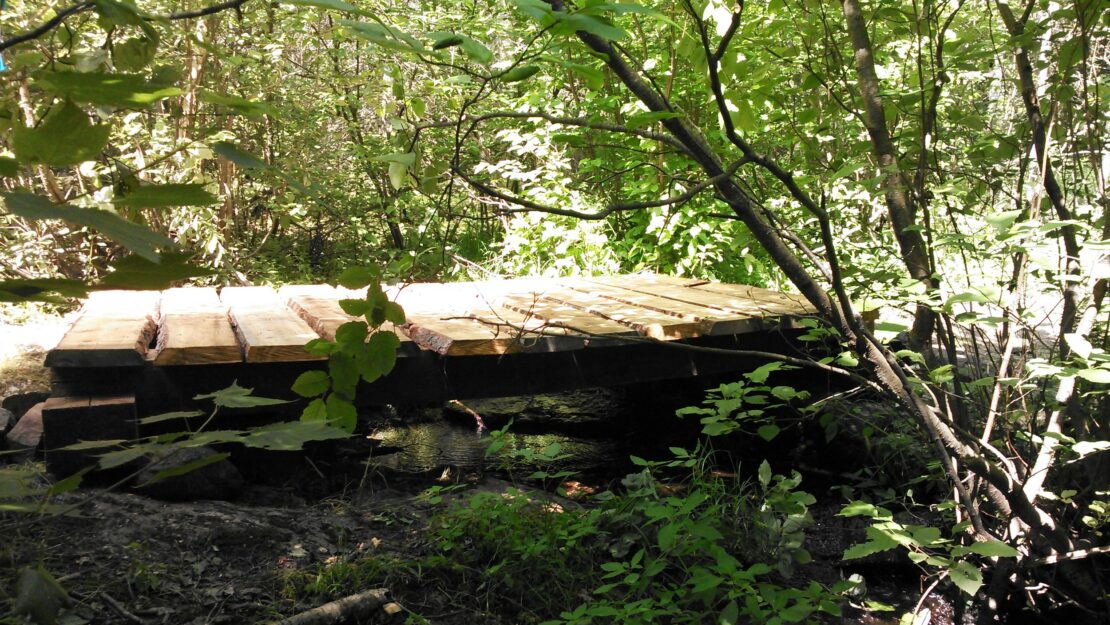We build bridges


By: Bryan Goldner
We build bridges and docks, walls and trails, staircases to the highest elevations and well… you get the idea. We build things. It’s easy to see the structures we construct. They are lasting and useful, but its not easy to see the qualities we build in people.
We build character. Not like regular character, but more like the character your grandad talks about when he used to walk ten miles to school uphill both ways, barefoot…through the snow.
We build relationships. Not the “Hey, I saw you in the grocery store one time” kind of relationships, but the “You changed my life, thank you for being here and being who you are” kind of relationships.
We build strength. The old man muscle, the kind that makes you feel like “Popeye ain’t got nothin’ on me”. Strength of the will and power of the spirit.
I spent the last week building a bridge across a narrow creek, off the Dry Lake Trail in Ely and it got me thinking. How do we affect the people who use these things we erect? What’s the point? It’s not just about crossing a creek. It’s not just about reaching the overlook and seeing the sunset over a deep blue lake to the sound of loons calling loud across the water. To me it’s about giving someone the opportunity to enjoy nature, to allow someone to feel like an adventurer without having to be Lewis or Clark. Walking the trails, hauling the lumber and putting something up in a place you can’t just find on Google Maps would be enough for me. As we walked on a trail that is more frequented by locals however, we were stopped and asked questions.

The hat, the shirt and the pack loaded with tools are dead giveaways that we are not just casual hikers. As we begin telling our stories, people open up about theirs; people of all ages and backgrounds, all of them curious, all of them thankful for our work. Sometimes it’s as small as my crewmate, Mike, giving a map away to a lost hiker that could make the difference in someone’s day. Other times it’s as far rooted as an older gentleman talking about his father serving in the CCC during the 1920s that makes one realize the depth of the legacy that we represent.
As we become more estranged from the natural world as a culture, sometimes all it takes is a bridge. Conservation Corps Minnesota was the crossing for me. When I found myself buried in the manifest of the “real world”, hard work, tall trees, and a fresh breath of air were what brought me back to understanding. We are not above our biology. We are animals and it wasn’t long ago that a man had to rely on the forest for the food in his belly and the energy of his being. So it goes that when the nine to five is the every day, a walk through the woods might just bring you back.